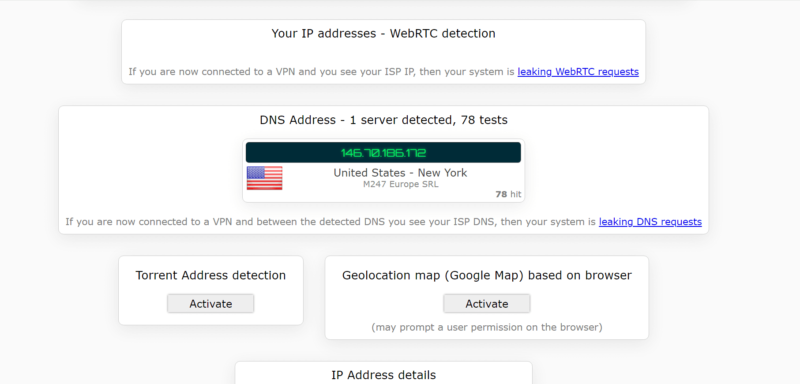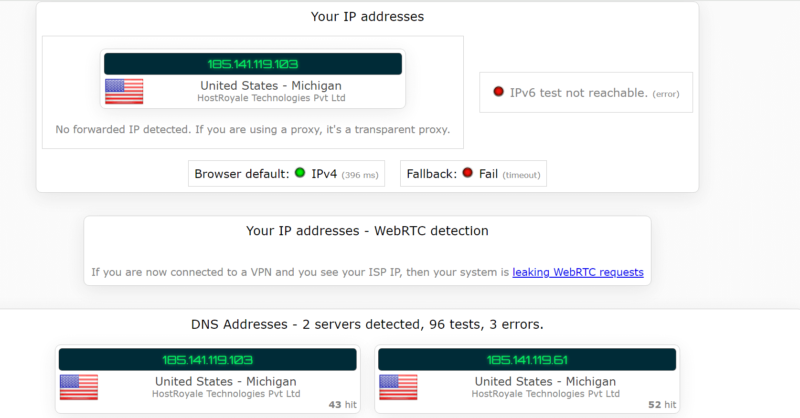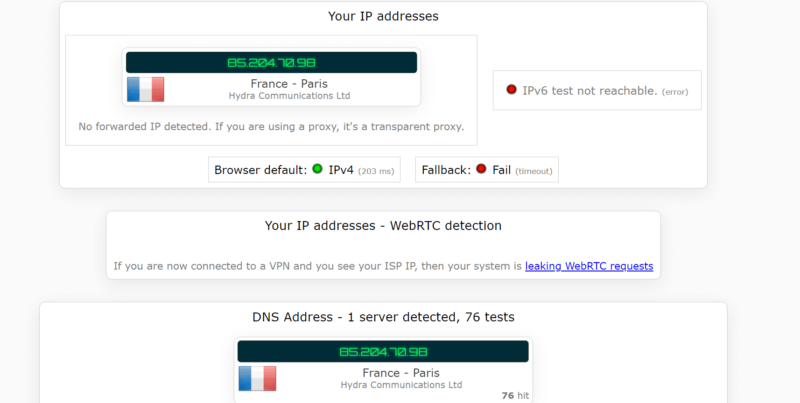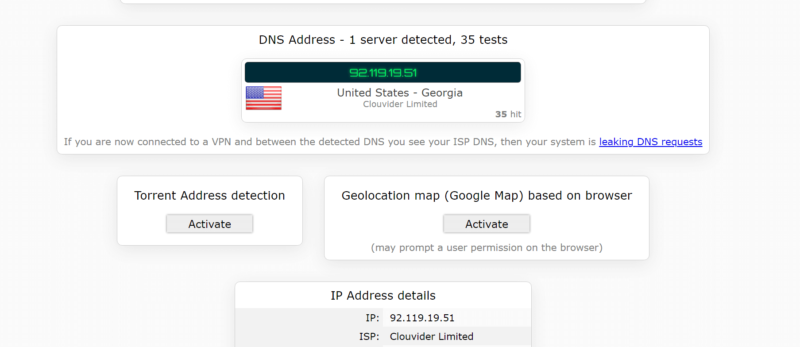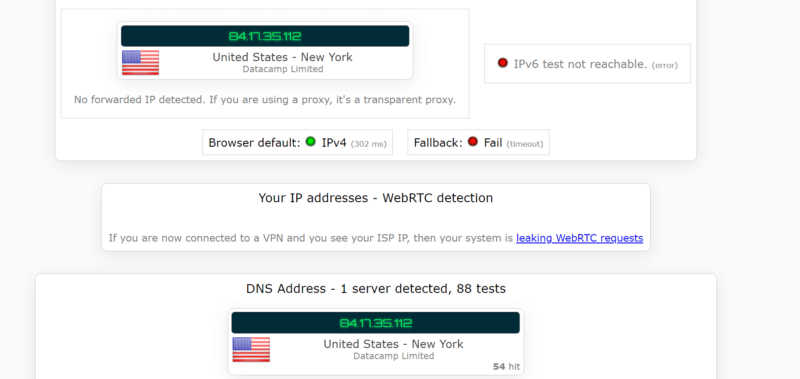Best VPN for School: Access Restricted Websites for Free With a VPN Unblocked for College 2025
We reveal the five best VPNs for school based on our research and tests. The chosen VPNs strike a fine balance between unblocking ability, speed, security and pricing. We also share the steps to get a VPN unblocked for school.
Most schools restrict the websites students can visit while using the school’s WiFi. However well-intentioned, such blanket bans can prevent students from accessing useful information and resources — unless they have the best VPNs. With the best VPN for school and the tricks to get a VPN unblocked for school, you’re set to view any site you need.
Connecting to a VPN server will change your online location by giving you a new IP address. This will let you outwit your school’s network rules and access the internet freely. In this article, we’ll highlight the best VPNs that can get past school geoblocks. Look out for the step-by-step guide on installing a VPN on your school computer.
-
11/02/2023
Updated the article to reflect ExpressVPN’s recent increase of 5 simultaneous connections to 8, as well as its expansion of server presence to 105 countries, previously 94.
-
12/11/2024 Facts checked
We fully rewrote the article with new providers and more useful sections.
-
03/03/2025 Facts checked
We’ve updated our NordVPN section with the latest software changes and added more information to our testing methodology section.
-
06/02/2025 Facts checked
We’ve added details about new DNS servers to our Surfshark section, the limitations of free VPNs and DPI and VPN fingerprinting techniques.
The 5 Best VPNs for School PCs, Chromebooks & More
1. NordVPN — Best VPN for School


Very Fast

Very Fast

Very Fast
NordVPN is the best VPN pick to unblock websites while on your school campus. It offers servers in 111 countries, more than any other VPN on this list. These servers can unblock virtually any website, including social media and streaming providers.
NordVPN’s obfuscated servers help ensure that your school’s systems don’t detect your VPN use. NordVPN also recently introduced its NordWhisper protocol — it doesn’t have the distinctive traffic signatures that school networks typically block, making it especially valuable in highly restrictive educational environments.
Protect Your Privacy. Get Our Free VPN Guide Now!
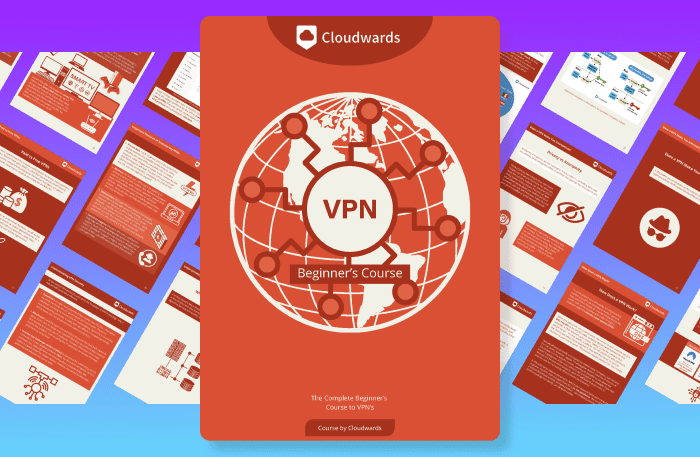
- Comprehend the essential role a VPN plays in safeguarding your digital life
- Gain a deep understanding of how VPNs function under the hood
- Develop the ability to distinguish fact from fiction in VPN promotions
If you don’t want to experience lags while browsing, NordVPN is your best bet. It offers fast download and upload speeds as well as low latency. This makes it a great choice if you intend to access websites or apps with heavy loads. For example, NordVPN could be a great option if you want to download large files for your research.
For students requiring maximum privacy in particularly restrictive environments, NordVPN offers Double VPN connections (Multi-hop) that route your traffic through two different servers, adding an extra layer of encryption.
NordVPN Hands-On Testing
NordVPN has apps for all the major OSes, including Windows, macOS, Android, iOS and Linux. It also works on Chrome, Firefox, Edge, Android TV and Apple tvOS. Downloading and installing the VPN on your device should take only a few minutes. Thankfully, NordVPN is fairly simple to use.
You can connect to a server by scrolling through the server list or clicking a country on the server map. This is a little less intuitive than using the large “connect” buttons that most VPNs have on their home screens. Connecting to a server is quick, though, and the kill switch works as expected. Our NordVPN review goes into more detail.
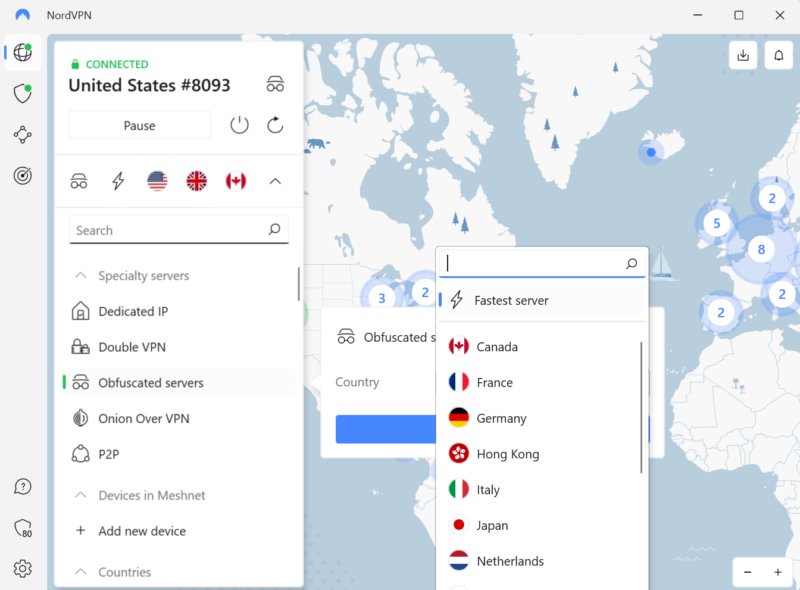
NordVPN Pricing & Value
NordVPN’s best subscription is the two-year plan, which costs $3.01 per month. There’s also a yearly plan, starting at $4.99 per month. If you need NordVPN for a short period, you can purchase the monthly plan at $12.99.
- **VAT may apply
- Unlimited GB
- 10
- Yes
- *The prices are charged in the first billing cycle only. Renewal prices vary.
- Unlimited GB
- 10
- Yes
- *The prices are shown only apply for the first 12 months.
- Unlimited GB
- 10
- Yes
- **The prices are applicable only for the first 24 months. Secure, high-speed VPN Threat Protection Pro™: Anti-malware and advanced browsing protection Threat Protection Pro™: Ad and tracker blocker Password manager with Data Breach Scanner 1 TB of encrypted cloud storage Identity and SSN monitoring and alerts Credit monitoring services Up to $1M in identity theft insurance Up to $100K in cyber extortion insurance
- 10
2. Surfshark — Best Budget VPN Provider to Unblock School WiFi
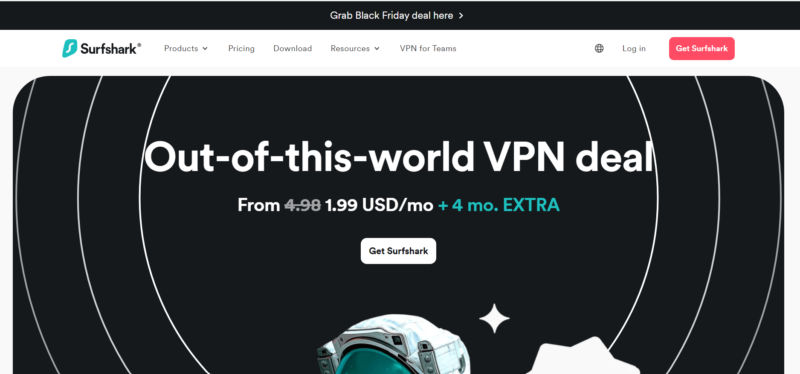

Very Fast

Very Fast

Very Fast
Surfshark is among the most affordable VPNs to use in school as long as you get the two-year rate — one of the cheapest on the VPN market. Despite its cheap pricing, Surfshark doesn’t compromise on features. It boasts over 3,200 servers in 100 countries that can unblock all the major streaming providers without struggle.
Surfshark offers unlimited simultaneous connections, meaning you can use one subscription on as many devices as you want. To save money, purchase a Surfshark plan with your friends and split the bill. Another unique feature is rotating IP, which changes your IP address often. This makes it difficult for your school’s systems to track you.
Surfshark recently launched its own DNS servers. Unlike regular DNS servers that may log your activity, Surfshark’s DNS servers don’t store, sell or share your data, adding an extra layer of anonymity to your browsing. This is valuable in school environments where tracking student activities is common.
Surfshark Hands-On Testing
There’s a Surfshark app for all the major platforms, including Windows, Android, macOS, iOS, Linux, Firefox, Edge, Apple TV and Fire TV. Surfshark’s apps are designed with beginners in mind, making it one of the best VPNs for beginners. Installing and downloading the app requires only a few minutes.
Connecting to a Surfshark server isn’t difficult, either. The “quick-connect” button on the home screen will connect you to the fastest available server location. Surfshark’s servers are well organized, enabling you to easily find the one you want. You can filter server locations using categories like static IPs, dedicated IPs, MultiHop and favorites.
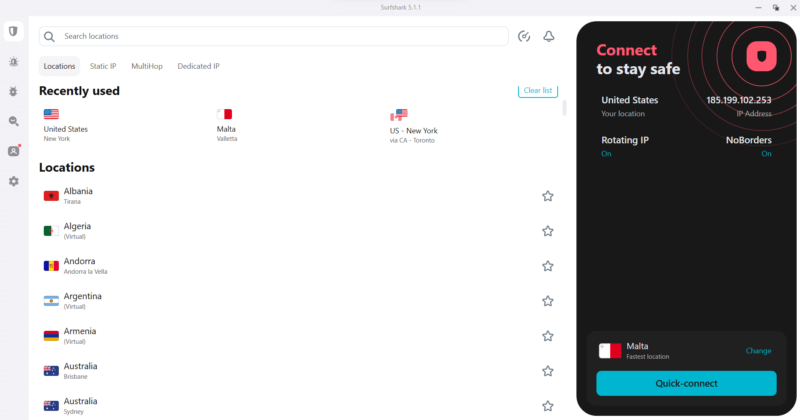
Surfshark Pricing & Value
Surshark’s best-value deal is the two-year plan, which starts at $2.19 per month. It also has a yearly subscription priced at $3.39 per month. The monthly plan starts at $17.95 per month. Considering its features and pricing, Surfshark offers some of the best value-for-money deals on the market.
- Unlimited GB bandwidth, Unlimited devices, Secure VPN, Ad blocker, Cookie pop-up blocker. Pricing for the annual and biennial plans only apply for the first payment. Renewal fees vary.
- Unlimited GB
- Unlimited
- Yes
- Everything in Starter, plus Antivirus protection, Identity protection, Email Breach and Credit Card Alerts, Online Alias Pricing for the annual and biennial plans only apply for the first payment. Renewal fees vary.
- Unlimited GB
- Unlimited
- Everything in One, plus Data removal Pricing for the annual and biennial plans only apply for the first payment. Renewal fees vary.
- Unlimited GB
- Unlimited
3. PrivadoVPN — Best Free VPN for School Networks
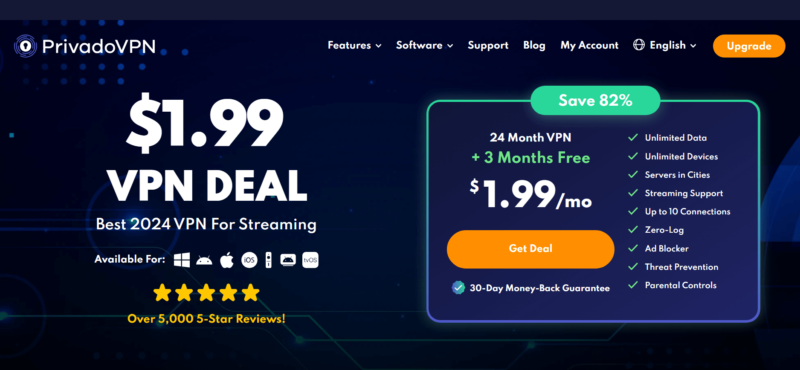
Choose PrivadoVPN if you need a VPN to quickly unblock a server but don’t have the funds to purchase a subscription. Its free plan offers access to servers in 10 countries:
Argentina, Brazil, Canada, France, Germany, Mexico, the Netherlands, India, the U.K. and the U.S. It’s easily the best of the free VPN services.
The free plan also offers 10GB of data each month. You can keep browsing if you exhaust this data, but the VPN will throttle your speeds to 1 Mbps. Because of this, we recommend PrivadoVPN’s free version for casual browsing that won’t require large downloads or uploads.
PrivadoVPN Hands-On Testing
PrivadoVPN is available on Windows, macOS, iOS, Fire TV and Apple tvOS. Unlike Surfshark and NordVPN, it has no browser extensions, but it still protects browser traffic when installed on a device. You can download PrivadoVPN’s apps from the website or your device’s app store. It should take just a few moments to set up the VPN on your device.
PrivadoVPN’s apps are well laid out, and all the options are easy to explore. Connecting to a server is also simple: Click the “power” button at the center of the home screen. You can also toggle the kill switch on or off from the home screen. See our PrivadoVPN review to learn more.
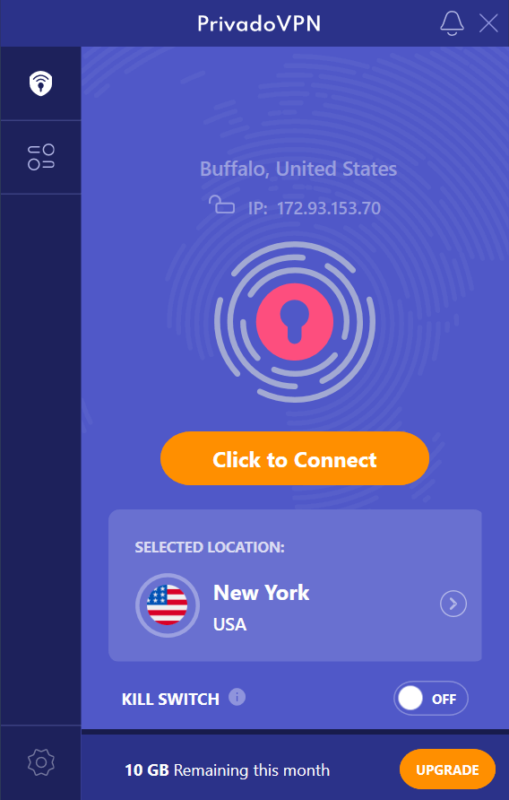
PrivadoVPN Pricing & Value
Aside from its free plan, PrivadoVPN offers three paid plans. The most discounted plan is the two-year plan (plus three months), which costs $1.11 per month. The yearly plan is the next best option at $1.33 per month. For $10.99, you can subscribe to PrivadoVPN for one month.
- 10GB
- 1
- Unlimited GB
- 10
- Yes
4. CyberGhost — Secure School VPN




CyberGhost is a useful alternative if you need a VPN for school. It gets a lot of things right: servers in 100 countries that can unblock streaming services, modern security features and affordable long-term prices. We also like that CyberGhost offers a 45-day money-back guarantee on the longer plans. This lets you take it for an extensive test run.
However, CyberGhost isn’t a good choice if you want a fast VPN. Our automated VPN tests show that while top providers keep 90% of initial download speeds, CyberGhost hovers around 60%. We cover that and more in our CyberGhost review.
CyberGhost Hands-On Testing
CyberGhost has apps for Windows, Android, macOS, iOS and Linux. We found them easy to download and install, and we connected to its servers by clicking the “power” button on the home screen.
CyberGhost offers “smart rules” that let users streamline their VPN use. For instance, you can set your device to connect to a VPN server before launching a specific app. This automates your VPN experience and ensures you don’t open sensitive apps without VPN protection.
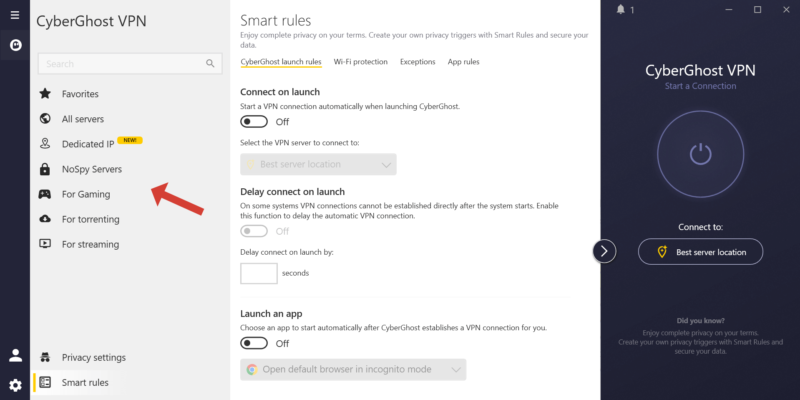
CyberGhost Pricing & Value
CyberGhost’s best deal is the two-year plan, which costs $2.19 per month and adds four months free to the first billing cycle. It also has a six-month plan priced at $6.99 per month. CyberGhost offers a 45-day money-back guarantee on the six-month and two-year plans.
5. ExpressVPN — Best School VPN for Beginners
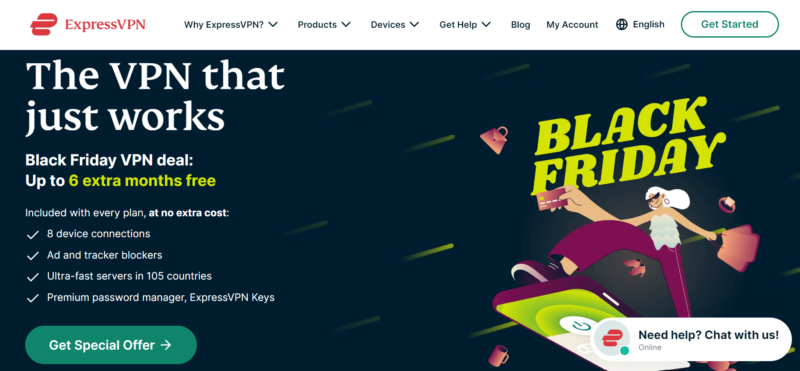

Very Fast

Very Fast

Very Fast
ExpressVPN is another good pick for browsing in school. It’s last on the list only because of its expensive pricing. Money aside, ExpressVPN checks all the boxes you need in a VPN. It has stable and fast servers in 105 countries, which all have excellent unblocking rates. Every server also offers obfuscation, making your VPN activity hard to track.
ExpressVPN Hands-On Testing
ExpressVPN’s apps are as simple as they come. You can connect to a server by clicking the large “connect” button or by scrolling through the server list. All the options are neatly arranged using the hamburger icon at the top-left corner of the home screen. ExpressVPN has apps for Windows, macOS, Android, iOS, Linux, Chrome, Apple TV and more.
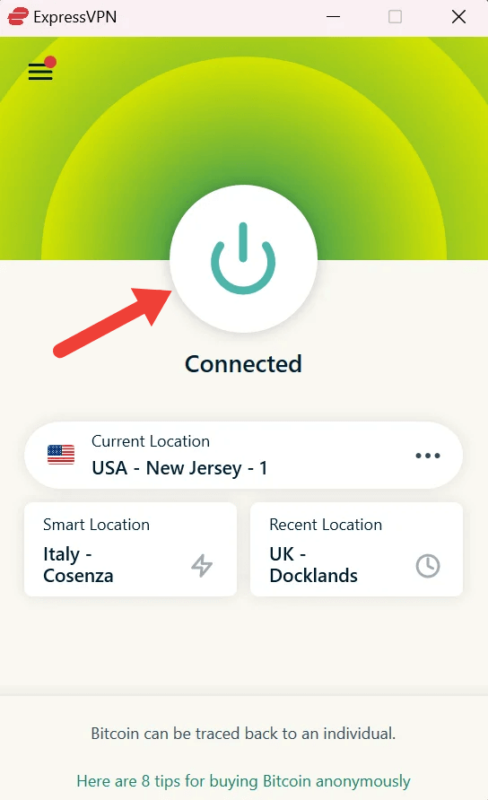
ExpressVPN Pricing & Value
ExpressVPN’s best offer is its two-year plan going for $4.99 per month. The next best deal is the one-year plan, which costs $6.66 per month. There’s a 30-day money-back guarantee on all plans. Read our ExpressVPN review for help on making the call.
Our Methodology: How We Tested the Best School VPN Services
The best VPN for school should have excellent unblocking abilities, strong security features, easy-to-use apps, fast speeds and affordable pricing. We tested over 50 VPNs based on those criteria to compile this list of the five best VPNs for school. Let’s break them down further.
- Unblocking ability: We connected to servers from different VPNs and attempted to unblock geoblocked websites. For example, we connected to NordVPN’s U.S. servers in Ghana and tried to open Netflix U.S.
- Security features: A secure VPN should encrypt user traffic using AES encryption, and have a functional kill switch and DNS leak protection to prevent leaks. We ran Wireshark, WebRTC and DNS leak tests on each VPN to confirm that those features worked as expected.
- Zero-logs privacy policy: We prioritized VPNs that have undergone independent security audits to verify their privacy claims and no-logs policies.
- Affordable pricing: We picked VPNs that offer affordable pricing options with large discounts on long-term plans. A good free plan is a plus. We checked the pricing options against the VPNs’ features to see if they provide high value for your money.
- Easy-to-use apps: We confirmed whether the VPN has apps for the major platforms and tested how easy it is to download and install them. We also connected to multiple servers to see if the connections were quick. Finally, we played with their various options to ensure that the buttons functioned properly.
- Speed: Our VPN experts at Cloudwards have set up a daily automated speed test for major VPN providers. We measure the upload speed, download speed and latency of these VPNs. In addition, we run manual speed tests for providers that aren’t part of our automated tests.
Can I Use a Free VPN for School?
You can use a free VPN to bypass school blocks. However, some free VPNs are honeypots for distributing malware and viruses. Others can’t be trusted because they make money by logging and selling personal user information. Even if you find a decent free VPN, you’ll notice that they likely have server and speed limits.
Students participating in remote learning sessions should be particularly cautious of free VPNs with data caps, as video-based classes can consume 500MB-1GB per hour, quickly depleting limited free VPN allowances.
If you must use a free VPN for school, we recommend PrivadoVPN. It’s the best free VPN on the market. The service offers free servers in 10 countries and 10GB of monthly data, plus additional browsing with capped download speeds. It also has vital security features like a kill switch and DNS leak protection, and it adheres to a no-logs policy.
Can Schools Block VPNs?
Some schools have systems that detect and block VPNs. They typically do this by flagging IP addresses that are known to be from VPN providers. The best workaround is to use a reliable VPN with obfuscation, which hides VPN traffic by making it look like normal web activity.
Modern school networks can employ Deep Packet Inspection (DPI) and VPN fingerprinting techniques to identify VPN traffic patterns, making standard VPN protocols like OpenVPN or IKEv2 increasingly vulnerable to detection and blocking.
How to Get a VPN Unblocked for School
Using a VPN to get around blocks at school is easy, but you first need to get your VPN unblocked at school. Follow the steps below to set up a VPN on your school computer. We’ll use NordVPN as an example.
We recommend using a USB drive to transfer the installation file to your school computer. This is because school networks might block downloads and VPN websites.
- Sign Up for a VPN
Go to the VPN’s website on a computer outside the school network and purchase a subscription. You’ll likely need your email address, a password and your payment details.
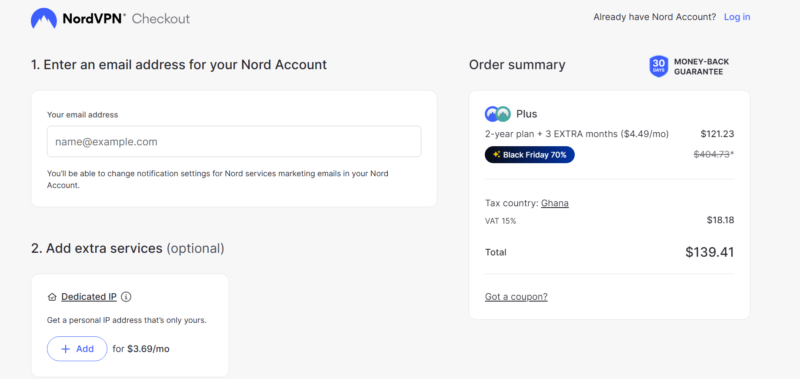
- Download the VPN App for Your School Computer
Visit the VPN’s download page to find the right client for the school device you’re using. For example, download the Windows installation file if your school device is a Windows computer.
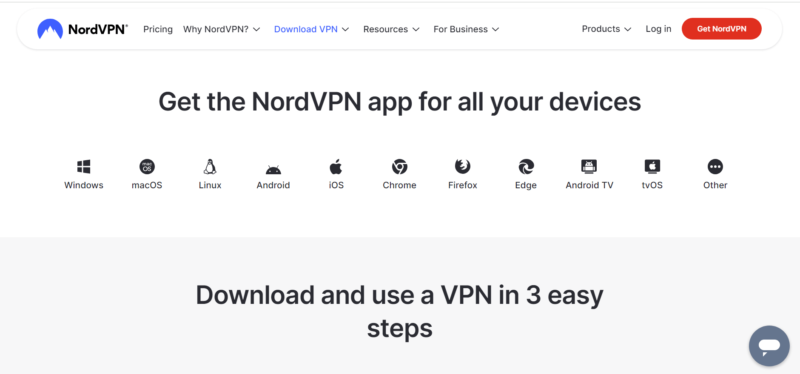
- Copy the Installation File to a USB Drive
Open the folder where the installation file was saved. Insert a USB drive into your device and copy the file onto it.
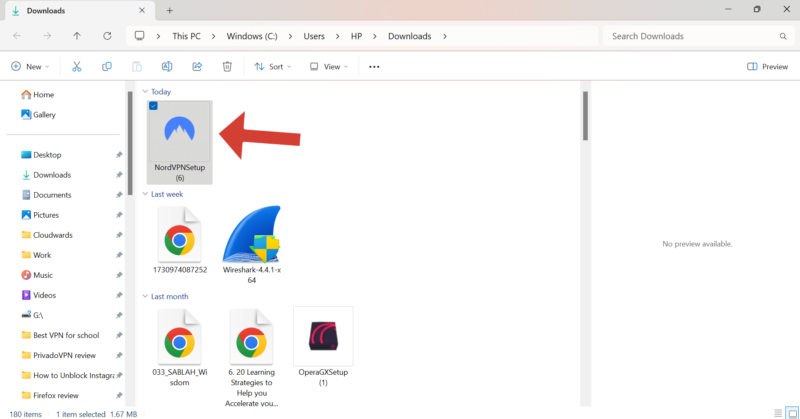
How to Install a VPN on a School Computer
After downloading the installation file onto a USB drive, you’ll have to transfer it to your school computer. Follow the steps below to learn how to do that.
- Copy the Installation File to Your School Computer
Connect the USB drive containing the installation file to your school computer. Copy and paste the installation file onto the computer. It shouldn’t take more than a couple of minutes.
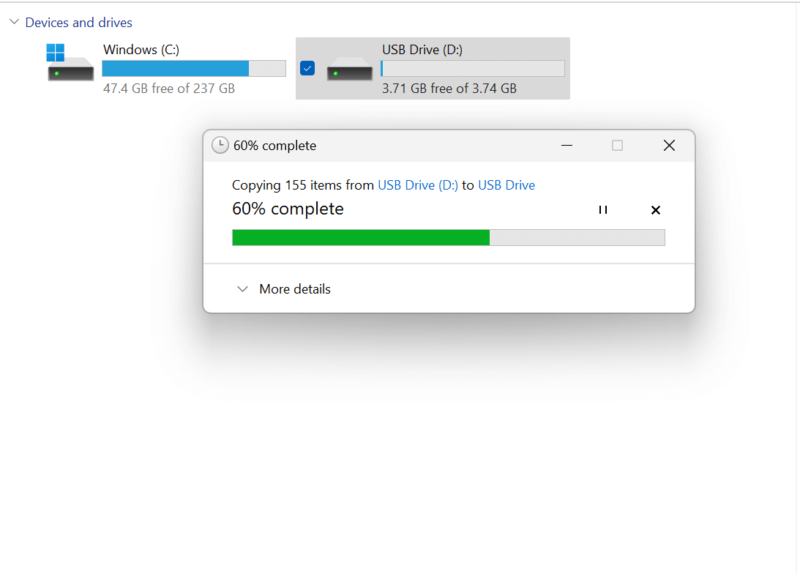
- Install the VPN App
Click on the installation package to commence the installation process. Follow all the prompts until the VPN app is installed on your device.
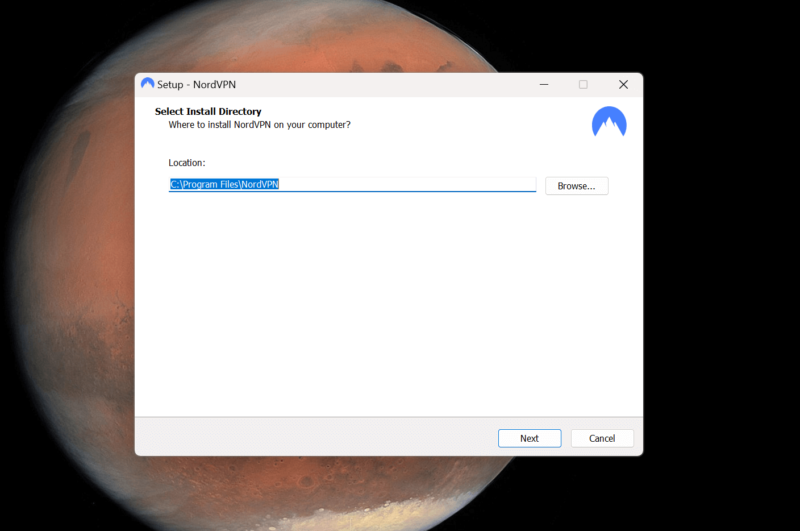
- Connect to a VPN Server
Open the VPN app and scroll through the VPN’s server list to connect to a server. Most VPNs have a “power” button on the home screen that will automatically connect you to a server. You can explore NordVPN’s server map to find a location in your preferred country.
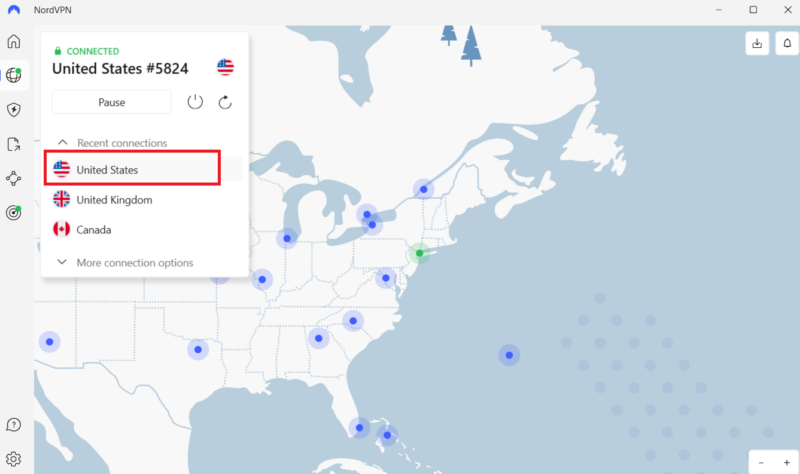
Final Thoughts
You can bypass your school’s internet restrictions using a VPN. We recommend NordVPN because it has a fast, secure and reliable server network that can unblock websites. Surfshark is an affordable alternative, while PrivadoVPN offers a handy free plan. CyberGhost is a user-friendly pick, and ExpressVPN is a secure choice.
Have you tried using a VPN to unblock websites in school? Did you record any successes? Did you face any challenges? Which VPNs in this article are you looking forward to using? Do you have any questions or comments about the VPNs in this article? Share your thoughts and opinions with us in the comments section below.
FAQ: Unblocked VPNs for School
VPNs are not illegal at school. However, some schools frown on VPN use. Before using a VPN, read your school’s internet policy to ensure you’re not breaching any regulations.
We recommend NordVPN, thanks to its reliable server network that can unblock websites. It’s also secure, fast, privacy-friendly and easy to use.
To unblock websites at school, connect to a VPN server. If regular servers don’t work, try obfuscated servers since they disguise VPN traffic.
NordVPN is a strong VPN that schools will find difficult to block. It has a kill switch and DNS leak protection to prevent data leaks. It also offers obfuscated servers that hide your VPN traffic.




